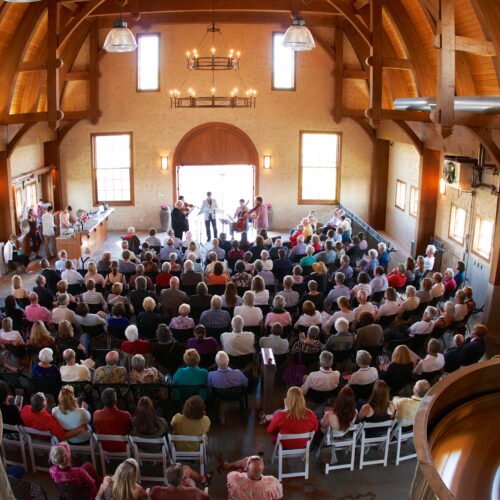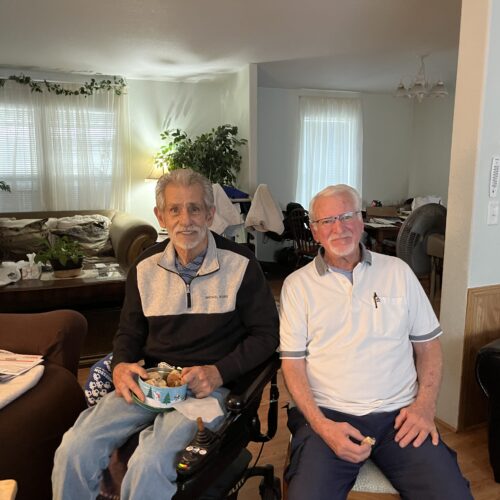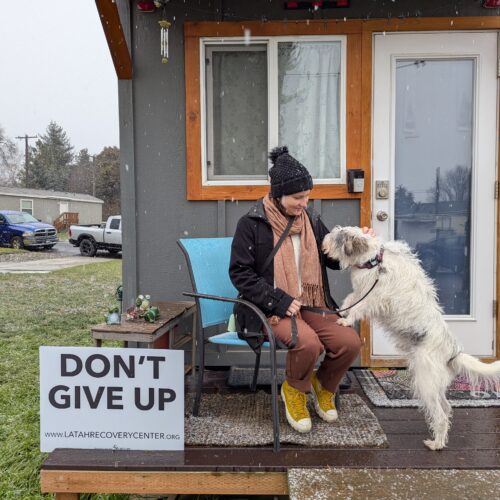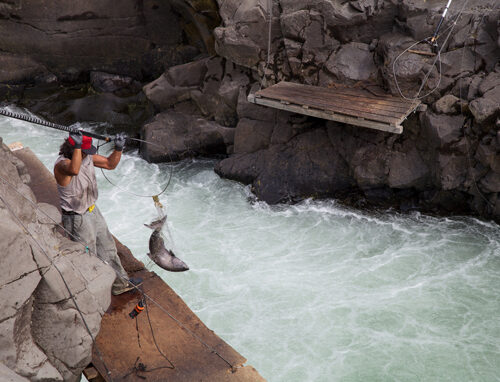Peer Coaching And Volunteers Help Addicts Through Recovery
Read
MOSCOW — Walking into the Latah Recovery Center on any given day, visitors will find volunteers helping three or four clients through peer mentorship services, connections to anonymous support groups or other resources.
The center provides roughly 700 client contacts per month, said Executive Director Darrell Keim. Unlike other recovery programs, Idaho’s nine recovery centers rely heavily on volunteers and peer recovery coaches. People recovering from addiction get help from others who have gone through the same process.
Nathan Jones has been coming to the Latah County center, located at 531 S. Main St. in Moscow, since 2017. He credits his sobriety to the support he receives there.
Previously Jones had gone through other substance abuse programs, including the Idaho CAPP Rider program — an inpatient treatment for low-to-moderate-risk men with substance abuse issues.
“I went through five different riders,” he said. “They’ve offered me the same program, the entire town hall five times. I can go in and teach that class.”
Being supported and held accountable without judgment is why Jones has kept coming back, he said. Relapse is also considered a part of recovery, so mentors focus on helping clients make a plan to avoid future relapse instead of shaming them.
“To me, recovery coaching really is about being the best friend that an addict didn’t know they had,” said Amber Peace, a certified peer mentor at the recovery center. “That means that when (Jones is) doing well, we’re so happy and proud for him, and so excited for the next chapter, whatever he wants to do with his life. If he screws up, I’m gonna be the best friend who goes, ‘Dude — really?’ ”
Peace’s own experience getting clean helps her assist her clients on a path to sobriety that works for them, she said. There’s not one single method that works for everyone, so she works with clients on an individual basis.
“It takes a good deal of understanding to have the kind of patience that helping other addicts recover requires,” she said. “I’ve heard it from clientele that — going to see counselors or other professionals who don’t get it, they’ve never lived with the addiction and having to get cleaned from that — (clients) don’t feel heard.”
In addition to peer mentorship, the center provides connections to outside resources, and helps clients with other needs to avoid relapse like clothing and food. After Jones’ apartment burned down last year, staff at the recovery center helped him get a motel room to stay at.
The recovery center also provides harm reduction materials, including a safe syringe exchange, the opioid reversal drug Narcan, condoms and medical supplies.
The syringe exchange was particularly controversial for the board, Keim said — but they ultimately chose to provide it in part because of a story from one of their own members.
One of the requirements for the recovery center is that over 50% of its board of directors be in recovery themselves from an addiction or mental health issue, to be an authentic voice for the recovery community.
One board member, a former syringe drug user, shared how they had previously contracted MRSA when they were using. In total, it cost the state roughly half a million dollars to keep that person alive, Keim said.
“We don’t encourage that behavior,” he said, “but we want them to be safe. Because it’s awfully hard to enter into recovery if you’re dead.”
Most years, the center has relied heavily on grants and fundraising for a significant part of its budget, Keim said — roughly $150,000 to $175,000 for their base operations each year.
This year, Idaho’s nine recovery centers, including the one in Moscow, could be seeing an additional $600,000 each year, for three years, per the governor’s budget request. That’s a move that could make a big difference, Keim said, though it depends on if the Legislature grants the request.
The center previously received funding from the state, Keim said, but with specifications such as “rural outreach” that barred the money from going to their bottom line.
“We’re already rural, (so) we couldn’t use it for our own services. We had to try and provide services out in the smaller towns,” he said. “Hopefully, they don’t put a lot of strings on it.”
Two of the biggest problems for clients are getting transportation to services and required meetings, and housing, Keim said. Landlords are often hesitant to rent to someone with a record, and accessing the support systems needed to stay sober is harder without somewhere to stay.
“It’s really important when people enter into recovery, that they stay within their local networks as best they can,” Keim said. “For the family support and employment, and all that is far more difficult if you can’t find housing.”
If that $600,000 budget is passed without too many strings, the center might be able to look into solutions for those problems, he said.
Starting in the next month, the center will also be working with the Idaho Department of Health and Welfare to provide reintegration services for people in jail roughly three months prior to release.
“We literally signed on that contract last week of January, so we’re hoping to have our recovery coaches in there for the first time this week or next week,” Keim said. “And we haven’t made the hire yet on the case manager — so It’s kind of like running a car while you’re building it.”
This report is made possible by the Lewis-Clark Valley Healthcare Foundation in partnership with Northwest Public Broadcasting, the Lewiston Tribune and the Moscow-Pullman Daily News.
More Northwest Extra
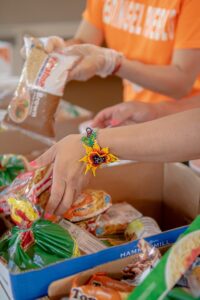
Banco de alimentos latino ayuda a comunidades en Washington
Miembros del equipo de Alimentando al Pueblo preparan cajas de alimentos culturalmente relevantes. Foto suministrada por Roxana Pardo. ESCUCHE (Duración 1:11) LEA Con menos fondos para la asistencia alimentaria después
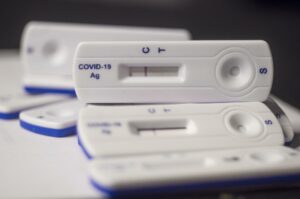
Online Portal Allows Residents to Report At-Home COVID-19 Test Results
Photo courtesy of Pixabay Listen (Runtime :50) Read The portal is also open to Idaho residents, but it is not currently one of the “collaborating states.” Washington residents previously had
Man Who Filed Petition For Release Deported
Israel Arrascue, a man who had been detained at the Northwest Detention Center in Tacoma, was deported to Peru on February 28, according to Maru Mora-Villapando, of the immigrant advocacy organization La Resistencia.
Lawsuit Filed Against Richland School District And Board Alleging OPMA Violations
A lawsuit was filed in Benton County Superior court this week against the Richland WA school district, school board and three individual members of the school board, alleging violations of the Open Public Meetings Act.
Will A New State Transportation Plan Eliminate Gas Powered Cars In WA?
Will A New State Transportation Plan Eliminate Gas Powered Cars In WA?
TC Energy And Pipeline Expansion In Northwest
The Canadian company TC Energy wants to increase the flow of natural gas through Oregon, Washington and Idaho.



